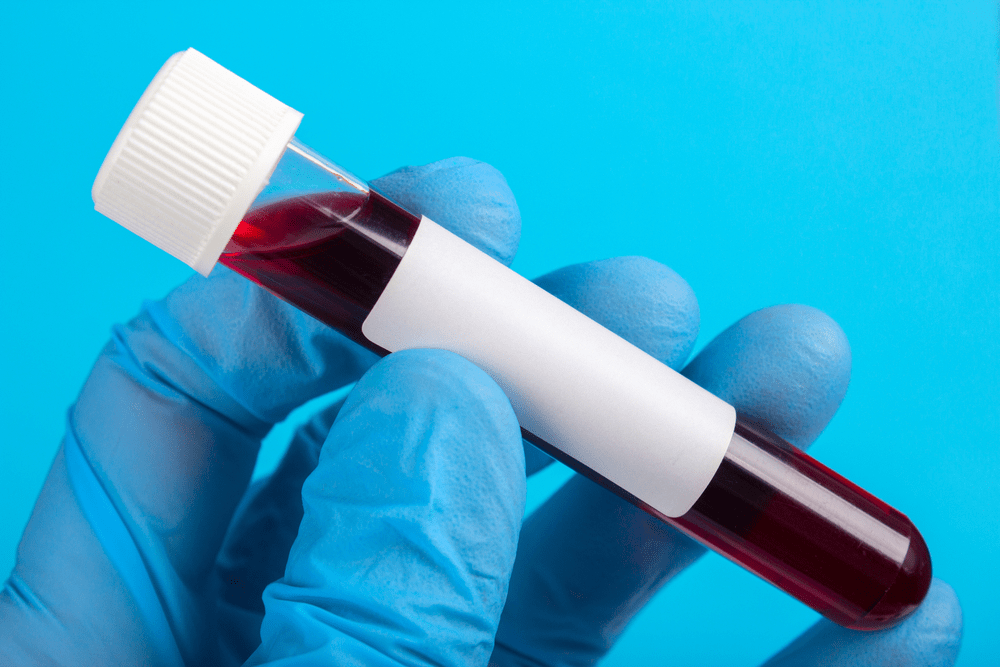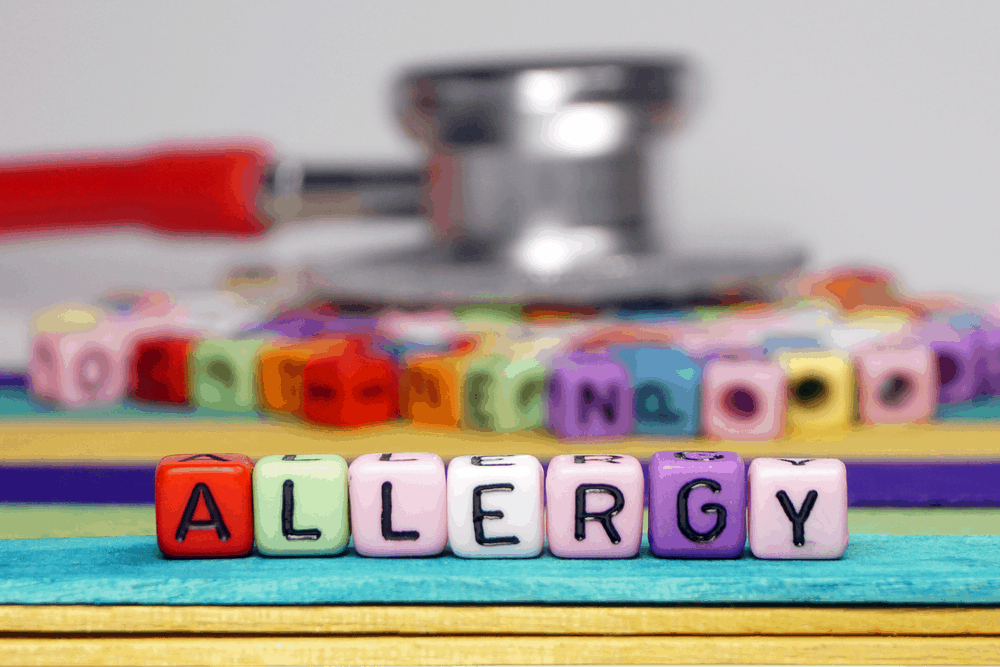There isn’t much on this earth that will bring you joy like a healthy newborn baby, but allergy testing for babies with eczema can still be scary. Of course, there are going to be rewards that you will also experience throughout your child’s life, but that first initial reaction can be so gut-wrenching that it will literally change your life. This is not to say that raising your child won’t come without challenges because it certainly will. And, one of those challenges will be battling illnesses and sicknesses. Regardless of how healthy your child is there will come a time when he or she faces some kind of illness or sickness. This will be especially true when they are younger, due to the not yet fully functional immune system.
One such issue that is common with babies is eczema. Even though eczema is a common condition amongst babies most parents will freak out when their child comes down with the condition. In fact, as soon as most parents discover that their kids have eczema they will overreact. This is completely understandable, but the truth of the matter is that not every child with eczema needs allergy testing. And, below you will learn exactly why this is the case.
Understanding Allergy Testing For Babies
Any time a parent learns that their child is sick or has come down with a serious case of flu-like symptoms they are going to have feelings of anxiety. This is just natural because you care about your child and only want the best for them. When parents learn that their children must undergo testing it brings about even stronger feelings of anxiety. Even though these tests are necessary and could help you uncover the culprit or culprits behind the illness it doesn’t make them any less nerve wrenching. This is even truer when it comes to allergy testing.
Therefore, it is pertinent to understand everything you possibly can about allergy testing and what the procedure entails. The truth of the matter is that allergy testing is like a rite of passage for most kids and parents. This is something that just about every kid or parent will go through in their life. Heck, you may even remember when your parents had you tested. You may not. Whatever the situation is, there is no reason to freak out just yet because the whole process isn’t as evasive as you think. The first thing that you need to know is that there are two main types of allergy tests available for your kids.
The Skin Tests
You learned above that there are two main types of allergy tests available for kids. First would be the skin test and there are two tests available within this category. The first would be the percutaneous skin test. This test involves introducing a diluted allergen into the top layer of your child’s skin. Yes, this might sound scary, but it really isn’t as bad as you think. The entire procedure just entails pricking the skin. The intradermal test, on the other hand, will require the use of a needle, which can be frightening for some parents and children.
This procedure just involves injecting the child with a diluted version of
allergens. Your pediatrician will probably guide you and your child through the
whole process, but just to ease your suffering, you should know that there will
be some preparation required for both tests. The preparation will begin a week
before the actual test takes place and it will basically just involve the
termination of antihistamines. You will no longer be giving your child
antihistamines a week before the test.
Do not worry because your doctor will advise you as to how you can prevent allergic reactions during this time period. Most experts will also advise you not to worry about the exposure to allergens because your child will only be exposed to a small amount during the testing process. Explain to your child that both tests will feel like nothing more than a toothpick pricking the skin. This should help ease some of those feelings of anxiety and dread.
Allergy Blood Tests
Another testing option that you have available to you is the allergy blood test. This test pretty much is what the name says. The doctor will draw blood and use it to find out what your child is allergic to and what they’re not. Just keep in mind that this test will also involve a needle, which is troubling for some children. Most children will react well to these tests if you hold them in your lap or distract them with a toy while the doctor draws blood.

Most eczema professionals would suggest explaining to your child that this test is for their betterment. The test is going to uncover what is making them sick.
The Food Challenge
Another type of test that is available but isn’t nearly as common as the two aforementioned is the food test or the food challenge. This test will only be performed if one of the other skin tests reveal that your child has a food allergy. This test basically just involves removing foods from your child’s diet that you suspect are triggering their eczema. Through the whole process, you will need to slowly increase the amount of food that your child is eating to determine when and what is triggering these allergy flare-ups.
Some of the problems with this type of testing are that you have to be extremely careful to make sure that your child is still meeting his or her daily nutrition requirements and the test can take some time to reveal the true culprit. It really helps to simplify and makes things easier if you keep a detailed food journal of what you are feeding your child every day. In addition to this, you want to make sure that you have plenty of “rescue” medication on hand if your child does experience a flare-up.
A Quick Overview Of Eczema
Now that you know all about allergy testing and what it entails it will also be important to understand eczema. Most parents probably already have a good understanding of the signs and symptoms of eczema, but they still don’t truly understand what the disease is. Eczema is basically nothing more than atopic dermatitis or in simple terms an itchy, red skin rash. This condition is common. This is especially true for children between the age of 2 months and 5 years old.
The reason that most parents immediately investigate allergy testing for babies
with eczema is that your child will be more likely to experience eczema if he
or she also has asthma or allergies. This is not to say that flare-ups can’t
occur during any time of the year, but they are extremely more common during
those long winter months. This is also a condition that your child could battle
for the rest of his or her life. Meaning they might also experience flare-ups
way up into their late adult years.
Why Allergy Testing Isn’t Suitable For All Children
You now understand allergy testing and probably have a pretty good understanding of eczema as a condition. As of right now, you are probably like most parents and wondering why at the beginning of this article it said that all children with eczema do not need allergy testing. If children with allergies and asthma are more prone to have eczema, then why wouldn’t it make sense to get them allergy tested? Well, there are a number of reasons that not every child with eczema needs to undergo allergy testing.
The first reason is that if your child avoids everything that he or she is allergic to it still isn’t going to cure their eczema. It probably won’t even do anything as to reduce the symptoms or flare-ups. Also, the most effective way to treat eczema is by following an eczema treatment plan given to you by your doctor. What’s even more troubling is that there have never been any proven test results showing that allergy shots help with eczema. That being said, there is potentially one exception to that statement.
And, that exception is lung allergy shots. Some scientists and researchers are now suggesting that lung allergy shots have the potential to help keep eczema symptoms at bay.
Are There Any Benefits At All To Allergy Testing?
It might seem like allergy testing is a complete waste of time and this might be somewhat true when it comes to eczema. However, this doesn’t mean that allergy testing is useless. In fact, there are several situations where it can come in handy. Allergy testing will not only reveal some of your child’s allergies, but it can reveal foods that they are allergic to. If you know anything about food allergies, then you know that they can be extremely dangerous. Some of them can even be deadly and therefore it is never a good idea to just omit allergy testing altogether.
When To Get Your Child Tested
Just because an allergy test won’t completely cure your child’s eczema it doesn’t mean that there aren’t some situations when you want to go through with testing anyway. If you experience any of the following situations, you probably want to consider speaking with a dermatologist about getting your child tested.
- If you have been following an eczema treatment plan given to you by your doctor, but your child continues to experience symptoms or the symptoms worsen, you might want to consider testing. Even if the condition just improves slightly with the treatment plan it still might be a good idea to go ahead and go through with the testing.
- If your child’s eczema worsens every time you are feeding them certain foods, you probably want to have them tested and see if they are, in fact, allergic to this food. You could remove the food from your child’s diet, but it is only a good idea to do this is your child has an immediate reaction when he or she consumes the food or beverage.
- When your child isn’t growing as expected this should be another indication that testing needs to be done because it could potentially be related to allergies.
Conclusion
As you can see, there is a whole lot of information that you want to consider when it comes to allergy testing for babies with eczema. There is no denying that eczema is a common condition and if you have had problems with the disease in the past then more than likely your child will as well. Eczema is a condition that your child might have to battle for the rest of his or her life, so it is best to take the time now to learn everything that you possibly can about it and relay that information to your child. If you know when and what techniques to use, you won’t have a problem helping your child live a normal and happy life.
Related Questions
How Can I Stop My Baby’s Eczema From Itching?
Eczema is itchy and it will drive your child to the brink of insanity if you let it. Luckily there are a number of solutions available that can help with the non-stop itching. Aloe Vera is an excellent alternative. You can simply apply this lotion to your child’s skin before bed each night and he or she will get an uninterrupted night’s sleep. You can also bathe your child in Epsom salt, as it will help remove the toxins and promote healthier skin. Coconut oil is another great option.
Is Baby Eczema A Food Allergy?
Food allergies and eczema are, by no means, the same thing even though they have been mistaken as being the same thing by many. Food allergies do not cause eczema but having eczema can potentially increase the chances of food allergies. Therefore, if your child has the condition you want to look into allergy testing as soon as possible.
Recent Posts
Eczema vs Bed Bug Bites: How to Tell the Difference? (W/ Pictures)
Trying to figure out the difference between eczema vs. bed bug bites? If your skin is covered in itchy red welts or splotches, your first thought might be that you are dealing with eczema. It is,...
Best Sunscreen for Babies With Eczema: Top 13 Picks (Updated 2020)
With summer always on the verge, it’s never too early to start looking for the best sunscreen for babies with eczema. Oh yes, even though winter is on the rise at the time of this article...

